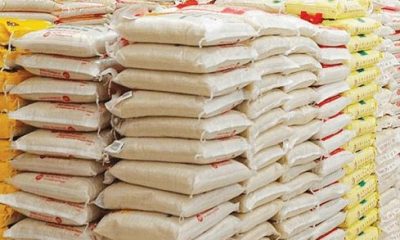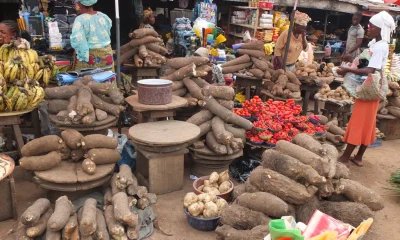BUSINESS
The key to successful food imports is overcoming past obstacles.

Nigeria needs to import essential food items like wheat and rice to address the cost-of-living crisis, but it must avoid repeating past mistakes.
Food inflation in Nigeria has become a significant issue, reaching 40.66 percent in May 2024, up from 24.82 percent a year earlier, according to the National Bureau of Statistics (NBS).
While importing food seems like an obvious solution, experts recommend better management to prevent exploitation of the system by traders. A major investor in the Nigerian agriculture industry, speaking anonymously, supported the government’s short-term plan to import food, provided it is well-monitored and managed to ensure it benefits Nigerians and supports agro-based industries.
The investor stressed the importance of planning for future agricultural seasons, ensuring farmers have access to improved seeds, fertilizers, and agrochemicals. Additionally, there is a need to rebuild strategic food reserves, improve food storage to reduce post-harvest losses, and encourage processing of agricultural commodities into more durable forms.
The next dry season is only three months away, and the rainy season will start in February/March. Nigeria must prepare early to avoid missing these opportunities.
Nigeria is currently not producing enough food to meet demand. According to the Ministry of Agriculture and Food Security, Nigeria produces 40 million metric tons of yam annually, but the demand is 60 million metric tons, leaving a 20 million metric ton gap. Similar gaps exist for cassava, Irish potatoes, sweet potatoes, wheat, and maize.
Insecurity significantly impacts food production. More than 350 farmers were kidnapped or killed in the 12 months up to June 2022, according to a Nigerian security tracking website. Between 2017 and May 2020, herdsmen attacks resulted in 2,539 deaths and 253 kidnappings, mainly targeting farmers. The 2022 Global Food Crisis Report highlighted that banditry and kidnapping in northwestern and northcentral states have continued to hinder food production.
The exchange rate crisis has increased input costs by over 100 percent in one year, and logistics costs have also soared.
According to a BusinessDay survey, average food prices in major Lagos markets have surged by over 70 percent since January 2024 due to persistent insecurity, climate change, high input costs, and a severe dollar shortage.
Experts suggest that the federal government needs to address insecurity, drastically reduce post-harvest losses, fix structural deficiencies in the value chain, and increase technology usage on farms to boost local food production in the long run.
Kolawale Jaiyeola, an economist and farmer from Oyo State, advocates for revisiting the successful models of the cement, sugar, and rice industries. He supports temporary food imports, but only if licenses are granted to real farmers with visible local investments, to prevent traders from abusing the process.
In the past, former President Muhammadu Buhari restricted foreign exchange for importing milk, maize, and other products to a few firms, which failed to import or produce enough to meet the economy’s needs, causing prices to rise. Jaiyeola believes this model was flawed and should not be repeated.
Tajudeen Ibrahim, director of research and strategy at Chapel Hill Denham, sees food imports as a solution to rising food prices, noting Nigeria’s significant shortfall in staple foods. He emphasizes the need for exchange rate stability to prevent imports from impacting overall inflation.
Muda Yusuf, economist and CEO of the Centre for the Promotion of Private Enterprise, describes the surging food prices as an emergency requiring immediate action. He commends the Tinubu administration for removing
port duties to encourage imports while stressing the importance of protecting local agricultural investments.
Financial analyst Kalu Aja also supports food imports to reduce rising food inflation. He argues that the best way to lower inflation is to import food for a limited period, allowing prices to stabilize.




















You must be logged in to post a comment Login